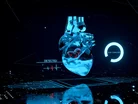Nvidia’s Craig Rhodes on the future of AI in healthcare

Over the past decade, the healthcare industry has borne witness to the incredible power of technology to drive innovation. Spurred on by the pandemic, new ways of working have taken root while the pace of technology adoption has sped up – especially artificial intelligence. In October, Health Education England and the NHS AI Lab published a report saying that all GPs should be trained in AI, showing adoption is only set to grow. Among the most exciting new use-cases is within the theater of healthcare itself: operating tables.
While we are just at the starting line of taking surgery from the physical to the digital world, this marks a pivotal moment for the industry. We are starting to see glimpses of what the future of surgery might look like. But to make this a reality, the crucial first step is to showcase how this technology drives clinical value and better clinical outcomes.
That’s precisely what drove us to partner with Hypervision Surgical, a spinout startup formed of clinicians and AI experts from Kings College London, that uses advanced computer-assisted tissue analysis to improve surgical precision and patient safety. Collaboration provides clear mutual benefit: knowledge and expertise are shared with each party, as is the credibility that comes with working with large, established institutions for the startup. But even more importantly, it brings benefits to both surgeons and patients.
A healthy dose of innovation: AI in action
Despite being around for years, AI still has a long way to go before it reaches its full potential in healthcare. Previous examples of AI during live surgery focused solely on using it in cameras to livestream video data. In contrast, Hypervision used AI in an in-vivo surgery study at IHU Strasbourg, France, taking it several steps ahead of what has currently been done. The Hypervision deployment augmented the doctor’s vision to create a heatmap alongside conventional red-blue-green colour information in a way that showed an intuitive display of tissue analytics information that was previously invisible to the human eye.
As a result, this provided additional information for surgical decision-making during the procedure itself, while also reducing the chances for complications for patients during the procedure.
Collaboration is key in healthcare
For startups in the industry to seize commercial and research opportunities, they need to evidence the work they do with concrete clinical outcomes. This involves contributing to scientific literature and gaining feedback from the clinical community – both positive or challenging. This is how healthcare startups build a sound clinical strategy, as well as a solid commercial plan and technology stack.
In turn, large organisations like ours and established institutions like King’s College London, benefit from taking on startups as mentees or partners. For KCL, experts can offer guidance to startups while also offering students an opportunity to see how their work translates in real-world applications – empowering their learning and development. For us, we can keep a finger on the pulse on the most cutting-edge ideas and help nurture them as they scale upwards. This can include providing them with computing power, filling gaps in their technology, networking opportunities and training. There is also clear value in driving competition, which will lead to increased investment in the sector, demand from the startups and adoption of the technologies by the clinical community.
Craig Rhodes, EMEA Industry Lead, AI for Healthcare and Life Sciences at Nvidia
The future of healthcare for patients
As we look to the future of healthcare, it’s important to consider what AI and robotics can achieve in the basic and routine cases, not just in the distant future. The pandemic has not only shown us how quickly healthcare systems can become strained, but also the enduring challenges of data acquisition, quality and sovereignty which remain to this day.
Challenges exist with geographic interoperability, too. But be it sharing data across borders, the hesitation around AI or the technology gap, these obstacles are accompanied by opportunity. Now more than ever, conversations on realising these opportunities must take place to level the playing field.
There is still an unknown factor with the true value of AI for some healthcare practitioners, and how large a part it will play in the future of clinical care. To begin answering this question, we need the technology, techniques, and resources to be driven into high value clinical and financial use cases. For example, we are now seeing AI move from radiology to pathology and other microscopy areas as this is where it brings more value. Further examples of this are in the world of genomic sequencing where AI adoption is accelerating. The same trend is seen with predicting protein folding which becomes more successful thanks to AI.
Individually, these advancements are important. But collectively, when they are all joined together, a bigger picture is established. A picture of fundamental change that will have significant effects for the world’s largest populations.
The future of healthcare is technology
The story of AI cannot be siloed across different parts of healthcare. It must be understood holistically, across the entire patient pathway. How can a stroke patient’s treatment and outcome be improved through imaging? How can AI be used to better understand genetics and analyse unstructured data? An interdisciplinary, collaborative approach is crucial. We – academia, startups and technology heavyweights – need to work together to make a difference.
- UNEP: Tackling Climate Change to Decrease Health Issue LoadSustainability
- Vaccines, Dementia & Food: The Week's Top Healthcare StoriesMedical Devices & Pharma
- The Toxic, Food-Borne Chemicals Costing Healthcare TrillionsHospitals
- How Amgen Combines Life-Saving Biotech & SustainabilitySustainability



